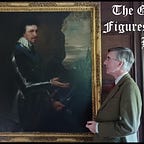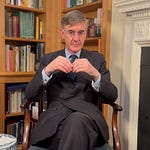The image most people have of Cardinal Wolsey, or ‘Wulcy’, as he spelt it, whenever he signed his name, is not a positive one. He is invariably depicted as a stout cleric; any film shows him in fine, expensive robes, with vast swathes of material needed to cover his overindulged frame.
It is true that Wolsey was a pluralist, with revenues from a variety of rich benefices, which funded his building programmes, and he had two children by ‘Lark’s’ daughter, both of whom subsequently entered the church. As he was meant to be celibate, this did not help to redeem him in the eyes of the Reformers.
He has, additionally, suffered by comparison with his contemporaries, as Lord Chancellor St. Thomas More is seen as a more saintly figure while the awful Thomas Cromwell, who was an avaricious schemer responsible for the execution of many innocent people, has been reinvented by Hilary Mantel in an act of historic revisionism that, it must be remembered, is fiction.
Yet as a statesman Wolsey was both important and able, bringing stability to the early years of Henry VIII's reign, and managing to give as much effect as could reasonably be delivered to his master’s often foolish demands.
Henry VIII is, along with King John, the worst of England's rulers, being both erratic and despotic. He is said to have executed two percent of the country's population during the course of his reign, and because it was longer than John's, and the barons had been tamed, his brutality was less effectively checked.
Henry thought of himself as some Arthurian knight, who needed to win fame by conquest, so he was always looking for war. His father, Henry VII, had left him a full treasury, hence he started his reign in a position of strength with a stable polity.
Wolsey began climbing the greasy pole in the latter part of Henry VII's reign. His first biographer, George Cavendish, noted that he was ‘an honest poor man's son’, who worked hard at his studies. He received the early patronage of Thomas Gray, first Marquis of Dorset, and later Sir Richard Nanfan, who commended him to Henry VII, for whom he carried out diplomatic missions to both Scotland and to the Emperor Maximilian, the grandfather of Charles V.













